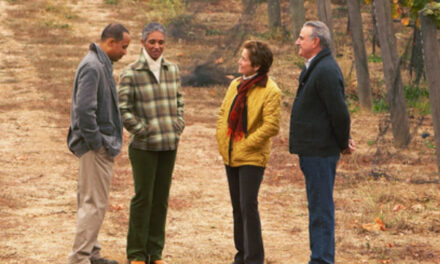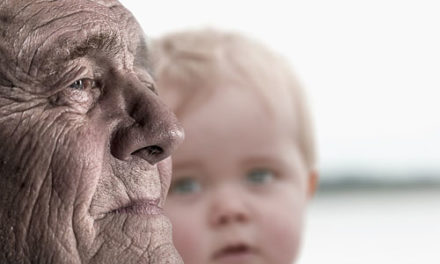by Michelle Watson, PhD, LPC
Here we all are, together in a way like never before. And none of us would have ever expected or chosen this, but now we’re bonding over our shared experiences as the coronavirus has invaded our cities, our nation, and the world.
The thing that has hit us so hard is how fast it’s happened. All without warning. I talked with a friend last night who said, “Isn’t it crazy to think that none of this was on our radar just two weeks ago?” Absolutely!
And no matter where we’re living, the stories of impact keep pouring in. Here are some I’ve heard in the past few days:
- My niece’s wedding this weekend just got cancelled (as did her honeymoon) because her venue closed earlier this week, so now she’s getting married in her parents’ backyard … on a Thursday. Not the dream wedding she had planned, to say the least.
- Several children and teens I know won’t have graduation ceremonies and/or won’t be able to finish their last high school basketball season.
- I know a couple of women who already lost their jobs, and another is wondering if her business will survive due to low financial reserves needed to keep it afloat.
- Two dads (and a granddad) dropped everything to rescue their college daughters and bring them home after their school year came to an abrupt halt.
As if these stories aren’t enough to capture the intense reality we’re all facing, I just had a profound conversation a few days ago with a friend who is in the middle of a medical crisis that’s led to serious decline in her physical functioning (most likely with a diagnosis of ALS). With raw vulnerability she opened up, “As strange as this may sound, this is the first time I haven’t felt so alone with what I’m going through. I’m increasingly aware of my own mortality and no one has been able to relate to me … until now. Everyone is finally experiencing a little bit of what I’m experiencing every single day.”
Her words hit me hard. And I don’t know about you, but as much as I’ve been trying to focus on the positive and the good, as well as on the people I love and the things I’m passionate about, these last couple of weeks have felt different.
The atmosphere and the air feel different now.
The roads we drive on feel different now.
The stores with bare shelves (specifically with no TP!) feel different now.
We’re all different now.
But I strongly believe that, for grandparents, this could be your finest hour to be a voice of strength—maybe even the loudest voice—in your grandchild’s life. You can be a voice that heralds hope and highlights peace, purpose, and promise. If you don’t speak up, then every other voice will outrank yours.
As you reach out, let me remind you of an important point: If your grandchild hasn’t expressed that he or she is scared, I assure you that they have some level of anxiety about their future and what this could all mean. So, as much as you can, tune into those fears by coming alongside to affirm, listen, and validate. (After all, this is what grandparents are especially great at doing so this is already in your wheelhouse!)
Then, reassure them that you want to be their rock to steady and comfort them.

1. Use this time to reach out and offer encouragement and comfort.
Remember that even simple interactions with you will be reassuring for your grandchild. And with many parents being overwhelmed with all the abrupt changes in schedules, working from home, and needing to keep their children occupied from morning to night, most will be overjoyed to have you pick up some of the slack by talking to their kids on the phone, texting, or connecting via Skype or FaceTime. Get online and listen to them, tell jokes, or read a book together. Ask them, “How can I pray for you?” or invite them to show you things they’ve been doing around the house.
2. Send a card the good old-fashioned way: Snail mail.
I am one of those people who loves to save every handmade card I’ve ever been given, especially from someone in my family. And I assure you that if you take the time to write a letter or make a card for your grandkids, telling them what you love about them, they will treasure it always because it stands out from technology. Your card will be a keepsake when written in your own handwriting as it can be read for years to come. And for extra credit, invite your grandchild to write you back—knowing that you might have to teach them what a stamp really looks like!
3. Share your heritage with your grandchild by walking down memory lane together.
Find photos or videos from when your grandchild was younger, as well as some from when you were much younger, and look at them together as you video chat or talk on the phone. Get ready to laugh as you tell stories about what each of you remembers when that photo was taken, and be sure to express how you felt—especially if it’s being proud or excited about something related to your grandchild!
4. Check in with your grandkids before bedtime, ending the day with love and affirmation. Studies show that the last thing we talk about, think about, and hear before we go to sleep is often correlated to our dreams and unconscious thoughts during the night. During this break from everyone’s normal routine, you can connect with your grandkids at the end of each day to convey words of life that help calm and ground them in your love. It could be a short text or live conversation. Maybe send a quotation or a verse from the Psalms (my favorites right now are 23 and 91). Do it every night for a week and you’ll see that it will yield positive results … for both of you!
So there you have it: A few ways that you can turn this crisis into a season of creating forever memories and increasing positive connections with your grandkids. It will make a big difference if they know that you care and you’re there for them. You are a stabilizing presence more than you may realize.
You can be your grandchild’s anchor in this storm so that when they look back, they’ll remember that you were in the storm with them.





